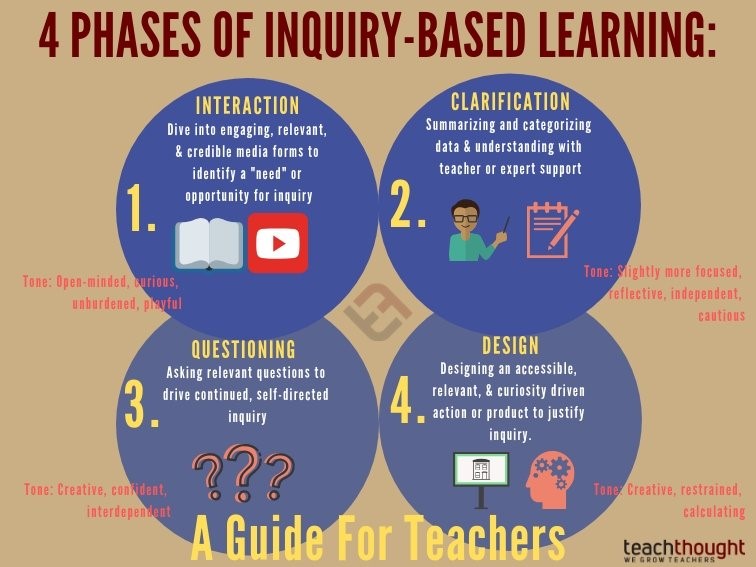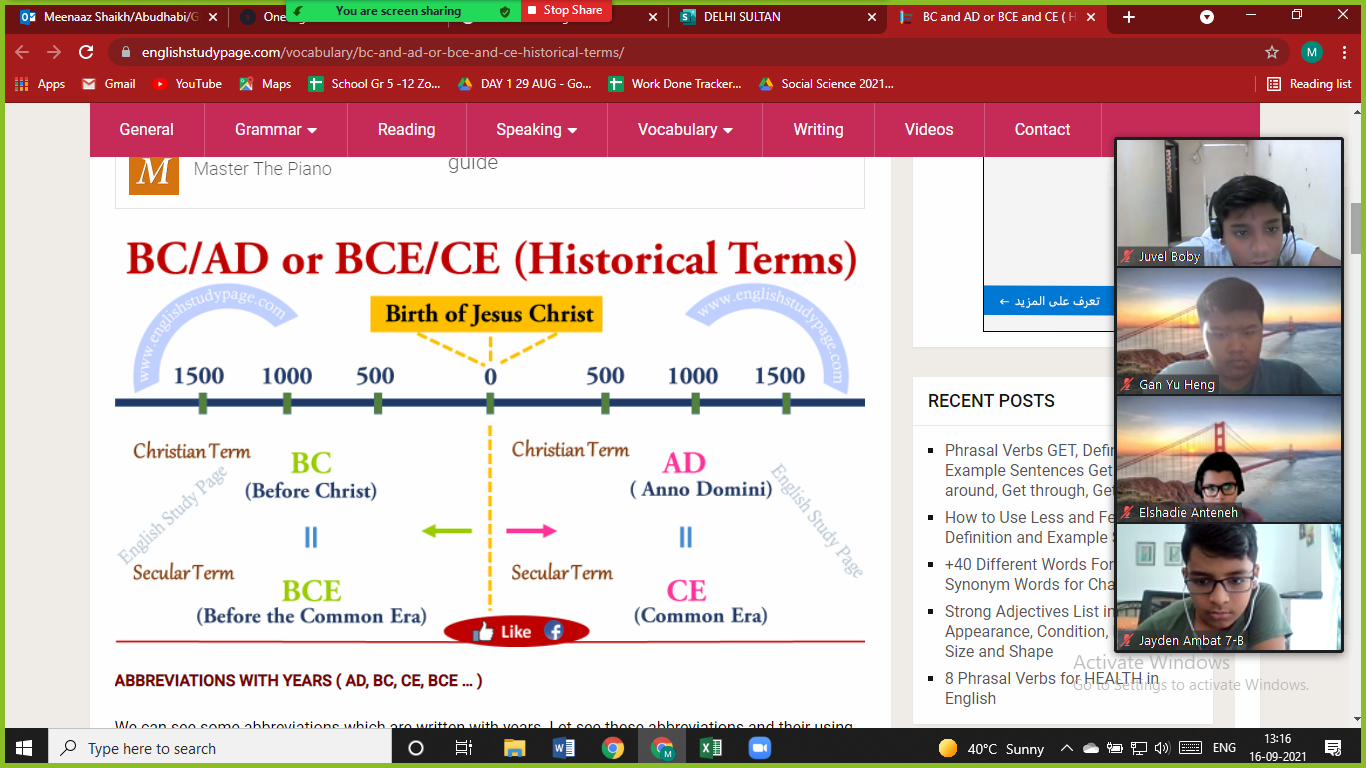What is Enquiry Based Learning?
EBL describes an environment in which learning is driven by a process of enquiry owned by the student.
Enquiry-based learning is more than asking a student what he or she wants to know. It’s about triggering curiosity. Activating a student’s curiosity is a more important and complex goal than mere information delivery.
Despite its complexity, inquiry-based learning can be easier on teachers, partly because it transfers some responsibilities from teachers to students, but mostly because releasing authority engages students.
Teachers who use inquiry-based learning combat the “dunno”—a chronic problem in student engagement.

When you ask a student something on the lines of, “What do you want to know about *any subject*?” you’re often met with a shrug or “dunno.” Enquiry-based learning, if front-loaded well, generates such excitement in students that neurons begin to fire, curiosity is triggered, and they can’t wait to become experts in answering their own questions.
What enquiry-based teachers do isn’t easy at all; it’s just hidden, and some people confuse the two. Teachers hide the strategies they use to encourage the process of enquiry and the students develop their own skills as content-area experts.
Triggering enquiry is about learning something new and triggering curiosity is no small feat.
Characteristics of Enquiry Based Learning:
- The process is essentially student-centred, with an emphasis on group
work and use of resources like the library and online.
- Lecturers become facilitators, providing encouragement and support to enable the students to take responsibility for what and how they learn.
- Students reach a point where they are not simply investigating questions posed by others, but can formulate their own research topics and convert that research into useful knowledge.
- Students gain not only a deeper understanding of the subject-matter, but also the knowledge-development and leadership skills required for tackling complex problems that occur in the real world.
Steps of enquiry-Based Learning
Enquiry Based Learning has 4 major classification, it begins with Interaction followed by Clarification, Questioning and Ends with Design.

How to incorporate it in the lesson plan?
Teachers can either use reference material from text books or YouTube or other educational sites as per their subject or create the floor for interaction. As the interaction begins teachers can select students in no specific order and ask them to summarize the seen content, followed by the teacher clarifying their doubts and building proper understanding. After clarifying doubts, the teacher can raise Critical Thinking Questions based on the concept taught. The last step is Design a platform where they can record or type their answers.
Benefits of EBL
- Nurture student passion and talents
- Empower students voice and honour student choice
- Increase motivation and engagement
- Foster curiosity and a love for learning
- Teach grit, perseverance, growth mind-set and self-regulation
- Make research meaningful and develop strong research skills
- Deepen understanding to go beyond memorizing facts and content
- Fortify the importance of asking good questions
- Enable students to take ownership over their own learning and to reach their goal
- Solve the problems of tomorrow in the classroom today,
How will EBL help students ahead in life:
EBL helps students generate the ability to critically think about a given problem.
As a teacher we have no doubt that the Problem solving and Critical Thinking are those educational values that students will need as essential life skills in the future.
EBL generates the ability for students to Question and seek clarification through research and collaboration.
Research and Collaboration are the most important needs of the future.
EBL, if correctly used, can develop these values in students at a very early age.





